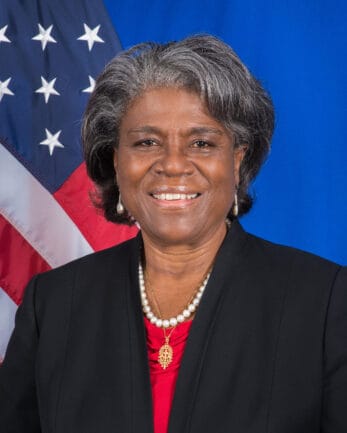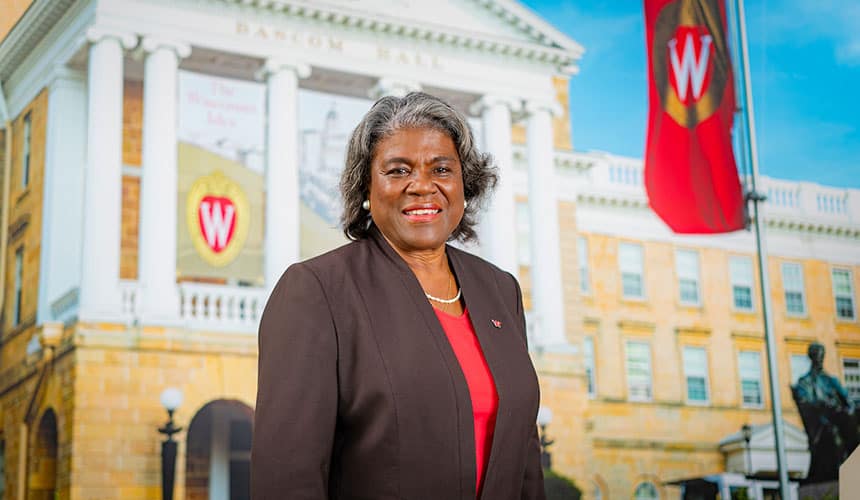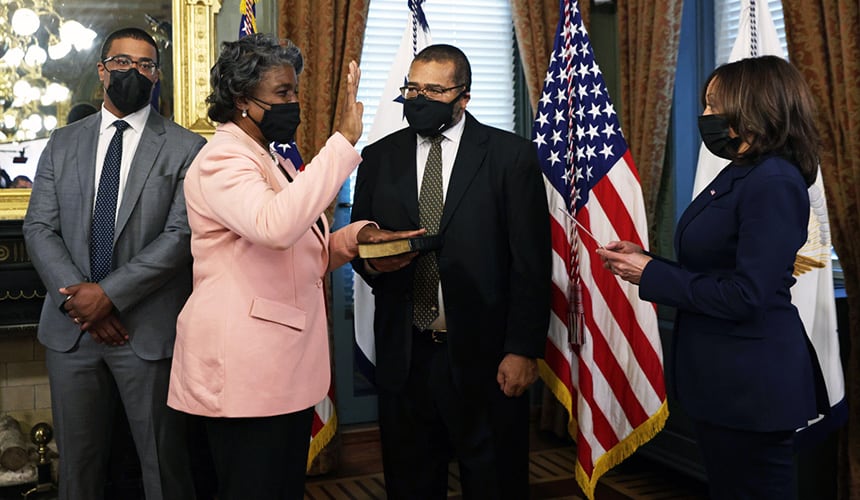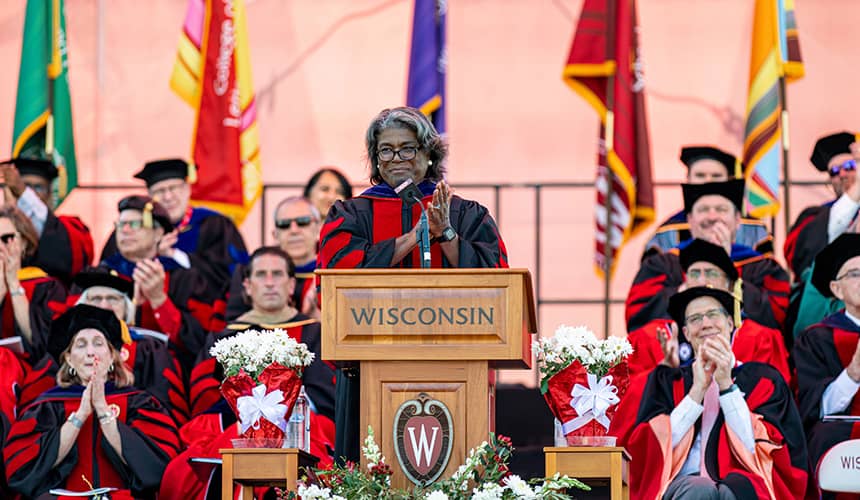Linda Thomas-Greenfield
The Gumbo Diplomat
“When I’m making gumbo,” says Linda Thomas-Greenfield MA1975, “people put in chicken and fish and sausage and okra, and the holy trinity of Louisiana cooking — onions, green peppers, and celery. You don’t think about this mélange of different things coming together and tasting good. It actually tastes really good. And putting it together is a work of art, and people love to watch you do it. They love to participate in it.”
For Thomas-Greenfield, a lifelong diplomat, gumbo is both a metaphor and a literal tool for the work she does on behalf of the United States. As a tool: she frequently invites her colleagues and representatives of other nations to come together to make gumbo, forging personal connections. As a metaphor: she describes her style of work as gumbo diplomacy, a partly improvisational approach to promoting and protecting the United States’ interests in the community of nations.
“You make it up,” she says. “It’s about putting things together that don’t really make sense and making it gel. It’s about bringing people together and talking through your differences and coming out of those discussions with a common agenda, with common values, and with an understanding.”
Thomas-Greenfield grew up the oldest of eight children in Baker, Louisiana. Both her mother and her grandmother were cooks, and she learned gumbo recipes from them. But she also learned that she wanted to make something of herself, and initially her ambition was to be a lawyer.
“Growing up in the segregated South, your choices were limited, because you based your choices on who you saw and who you met,” she says. “And one of the people that I met when I was in high school was a lawyer who was married to my high school civics teacher. I was so impressed with him, I decided I wanted to be like him. I always say to young people, ‘Just want to be something and you’ll become something.’ It doesn’t matter whether it’s what you thought you wanted to be. So I wanted to be a lawyer.”

Thomas-Greenfield earned her bachelor’s degree at Louisiana State University, where a professor suggested that she attend the University of Wisconsin for graduate school. There, she met Professor M. Crawford Young, a political scientist who specialized in African studies.
“I became an Africanist sort of overnight, and Crawford encouraged me along with others,” she says. “I chose to go to Liberia because I was so intrigued by Liberia’s history, having been settled by slaves who had returned to Africa from the United States, and so I went there and spent a year and a half. And what’s so interesting about that experience in Liberia is that I actually was introduced to the foreign service there.”
After teaching at Bucknell University, Thomas-Greenfield passed the foreign service exam and began a series of postings: Nigeria, Gambia, Kenya, Pakistan, Jamaica, Switzerland. In 2008, President George W. Bush appointed her ambassador to Liberia, where she served for four years, coinciding with the presidency of Ellen Johnson Sirleaf. It was there that Thomas-Greenfield’s gumbo diplomacy gained attention.
“There are two gumbos that I’ve made that are, in my view, very famous,” says Thomas-Greenfield, career foreign service officer and ambassador. “The first one was for President Sirleaf when she got the Nobel Peace Prize. She was the first woman president in Africa — president of Liberia during my time as ambassador there. And then I made gumbo for Secretary of State Condoleezza Rice.”
On January 21, 2021, President Joseph R. Biden nominated Thomas-Greenfield to the post of U.S. Ambassador to the United Nations, a cabinet-level appointment. She was confirmed by the Senate in February 2021, after hearings in which she affirmed her desire to help the United States return to leading global coalitions. That goal was put to the test a year later when Russia invaded Ukraine. Thomas-Greenfield was at the center of efforts to bring democracies together to pressure Russia to end its incursion.
“What President Biden wanted me to do was bring back U.S. leadership in the multilateral system, to bring back diplomacy in our efforts, and to bring back our values for human rights and freedoms into our engagements at the United Nations,” she says. “That was our goal when I started and it’s our goal right now.”
Through a diplomatic career that has spanned four decades, Thomas-Greenfield has tried to embody the lessons she learned from her family — the improvisation and personal touch that make gumbo diplomacy effective. But if her recipe for success has remained the same, her recipe for gumbo has evolved — it’s neither her mother’s nor her grandmother’s.
“I kind of combined over the years different recipes that I saw and learned, and I think I improved on all of their recipes,” she says, adding only one undiplomatic note. “I think my gumbo is a lot better than either of theirs.”
 64° F
64° F

